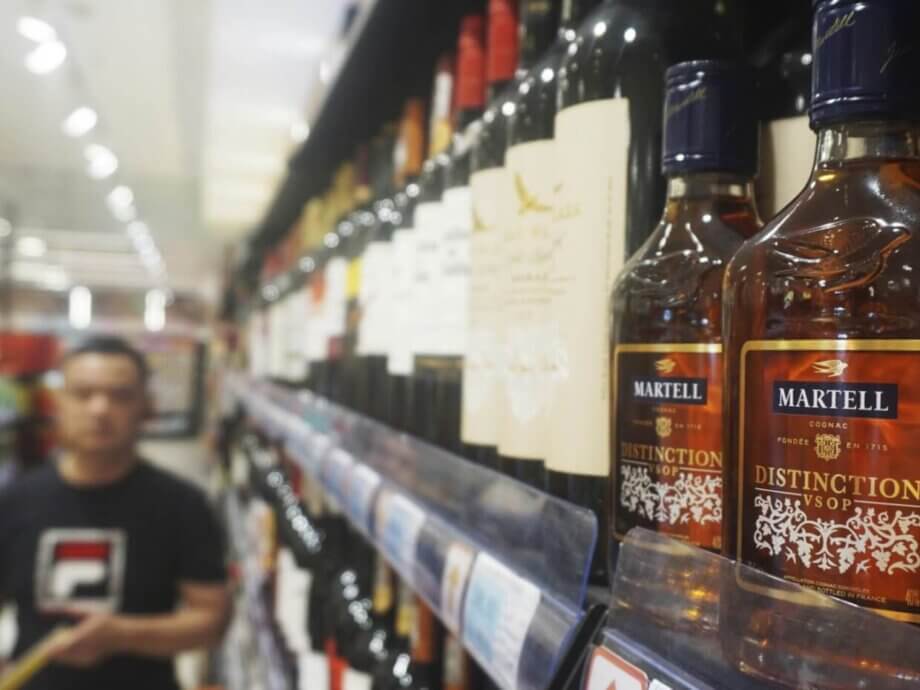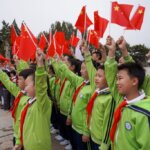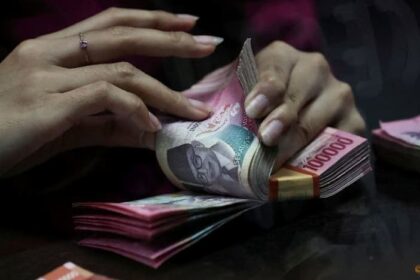China’s Anti-Dumping Ruling on EU Brandy: What Happened?
China’s Ministry of Commerce has announced the final results of its anti-dumping investigation into brandy imports from the European Union (EU), imposing anti-dumping duties of up to 34.9% for five years starting July 5, 2025. The decision follows a months-long probe that concluded EU-produced brandy, particularly French cognac, was being sold in China at unfairly low prices, threatening the domestic spirits industry. However, in a significant development, major cognac producers who agreed to minimum price commitments will be exempt from these steep tariffs, offering partial relief amid escalating trade tensions between China and the EU.
- China’s Anti-Dumping Ruling on EU Brandy: What Happened?
- Why Did China Launch the Anti-Dumping Investigation?
- Who Is Affected by the New Duties?
- How Did the Industry and Governments Respond?
- What Are Price Undertakings and How Do They Work?
- Trade Tensions: Brandy, Electric Vehicles, and the Bigger Picture
- Economic Impact: Winners, Losers, and Market Reactions
- International Reactions and the Path Forward
- In Summary
The anti-dumping duties target EU brandy shipped in containers under 200 liters, covering imports from October 1, 2022, to September 30, 2023. The investigation determined dumping margins between 27.7% and 34.9%, with the highest rates applied to some of the world’s most renowned cognac brands. The ruling is the latest flashpoint in a broader trade dispute between China and the EU, with both sides accusing each other of unfair trade practices in sectors ranging from electric vehicles (EVs) to agricultural products.
Why Did China Launch the Anti-Dumping Investigation?
The anti-dumping investigation was initiated in January 2024 after a request from China’s domestic spirits industry, which argued that European brandy was being sold below fair market value, undermining local producers. In trade terminology, “dumping” refers to the practice of exporting goods at prices lower than those charged in the home market or below the cost of production, often to gain market share or drive out competition. Anti-dumping duties are a common tool used by governments to protect domestic industries from such practices.
China’s Ministry of Commerce stated that the investigation found a clear causal relationship between the dumping of EU brandy and the threat of material injury to China’s domestic brandy sector. The probe was conducted in accordance with Chinese law and international trade rules, including those of the World Trade Organization (WTO), according to Chinese officials. The ministry emphasized that the decision was made to maintain market order and protect the legitimate interests of Chinese enterprises.
While the official justification centers on protecting domestic industry, many analysts and industry observers see the move as part of a tit-for-tat trade dispute. The EU had previously imposed tariffs of up to 45% on Chinese-made electric vehicles, citing unfair subsidies. In response, China launched investigations into several European exports, including brandy, pork, and dairy products, widely interpreted as retaliatory measures.
Who Is Affected by the New Duties?
The anti-dumping duties apply to all EU-produced brandy in containers under 200 liters, but the impact is most pronounced for French cognac, which dominates EU brandy exports to China. China is the world’s largest market for cognac by value, with annual exports from France to China worth approximately €1.4 billion ($1.6 billion). The affected brands include some of the most prestigious names in the spirits industry, such as Hennessy (owned by LVMH), Rémy Martin (Rémy Cointreau), and Martell (Pernod Ricard).
However, the final ruling includes a crucial exemption: major cognac producers who have agreed to sell their products in China at or above a minimum price will not be subject to the anti-dumping duties. This arrangement, known as a “price undertaking,” allows these companies to maintain access to the Chinese market without the burden of additional tariffs, provided they comply with the agreed pricing terms. The minimum prices have not been publicly disclosed, but the exemption offers significant relief to the largest exporters.
For companies that did not sign the price commitment, or for those who fail to comply with its terms, the full anti-dumping duties—ranging from 27.7% to 34.9%—will apply. This creates a two-tiered system, with major brands able to continue trading under more favorable conditions, while smaller producers and those outside the agreement face steep barriers to entry.
How Did the Industry and Governments Respond?
The announcement of the duties and the subsequent exemptions for major cognac producers triggered immediate reactions from both industry and government stakeholders. French spirits makers initially saw their share prices drop on the news, reflecting concerns about lost sales and market access. However, losses were pared back after confirmation that leading brands would be spared the full force of the tariffs under the price commitment scheme.
Florent Morillon, president of the French cognac producers’ association BNIC, described the price commitment regime as “a substantially less punitive alternative” to the anti-dumping duties, though he noted that market access would still be impaired compared to pre-investigation conditions. BNIC also called on the French government and the European Commission to continue negotiations with China to restore normal trading conditions.
Remy Cointreau, owner of Rémy Martin, echoed this sentiment, stating that the arrangement represented “a significantly more favorable outcome, or at the very least, a substantially less punitive alternative” compared to the duties. Pernod Ricard, parent of Martell, expressed regret over the increased cost of operating in China but acknowledged that the new environment was preferable to facing full tariffs.
On the European side, the response was mixed. The European Commission’s trade spokesperson, Olof Gill, criticized the duties as “unfair and unjustified,” arguing that they were inconsistent with international trade rules. SpiritsEUROPE, the trade group representing EU spirits producers, expressed “deep regret” over the ruling and warned that the measures would pose a significant barrier to legitimate trade. The group also urged Chinese authorities to extend the price commitment option to all eligible exporters, not just the largest brands.
What Are Price Undertakings and How Do They Work?
Price undertakings are a common feature in international trade disputes involving anti-dumping investigations. Under such arrangements, exporters agree to sell their products in the importing country at or above a specified minimum price, thereby addressing concerns about dumping without the need for punitive tariffs. In return, compliant exporters are exempted from anti-dumping duties.
In the case of the China-EU brandy dispute, major cognac producers—including Pernod Ricard, Rémy Cointreau, and LVMH’s Hennessy—agreed to the minimum price commitments set by China’s Ministry of Commerce. This allows them to continue exporting to China without facing the new duties, provided they adhere to the agreed pricing structure. The details of the minimum prices have not been made public, but the arrangement is seen as a pragmatic compromise that preserves market access for the largest players while still addressing China’s concerns about unfair pricing.
For smaller producers and those not included in the price undertaking, the situation is less favorable. They remain subject to the full anti-dumping duties, which could effectively price them out of the Chinese market. Industry groups have called for the exemption framework to be extended more broadly, arguing that the current system creates an uneven playing field within the EU spirits sector.
Trade Tensions: Brandy, Electric Vehicles, and the Bigger Picture
The imposition of anti-dumping duties on EU brandy is widely viewed as part of a broader pattern of escalating trade tensions between China and the EU. The dispute over brandy follows the EU’s decision to impose tariffs of up to 45% on Chinese-made electric vehicles, citing unfair subsidies that allegedly undercut European manufacturers. In response, China launched investigations into several European exports, including brandy, pork, and dairy products.
These tit-for-tat measures reflect deeper structural issues in the China-EU economic relationship, including a significant trade deficit (estimated at $357.1 billion in China’s favor) and disagreements over market access, subsidies, and regulatory standards. Both sides have expressed a desire to resolve disputes through dialogue, but progress has been slow and tensions remain high.
Diplomatic efforts have continued alongside the trade measures. China’s Foreign Minister Wang Yi visited Europe in early July for meetings with French President Emmanuel Macron and other EU leaders, with trade issues high on the agenda. While both sides have praised steps toward resolving specific disputes, such as the brandy case, they acknowledge that “major issues remain unresolved,” particularly regarding the exclusion of some exporters from the exemption framework and the broader context of trade relations.
Economic Impact: Winners, Losers, and Market Reactions
The immediate economic impact of the anti-dumping duties is most acutely felt by smaller EU brandy producers who are not covered by the price undertakings. For these companies, the new tariffs represent a significant barrier to entry in the Chinese market, which has become increasingly important for European spirits exporters. Industry data indicates that monthly cognac exports to China have fallen by as much as 70% since preliminary duties were announced in late 2024.
For the major cognac houses that secured exemptions, the outcome is less severe but still challenging. The requirement to maintain minimum prices may limit their ability to compete on price and could affect sales volumes, especially if Chinese consumers turn to alternative products. However, the exemption preserves their presence in a critical market and allows for continued investment and planning.
Share prices for leading French spirits companies initially dropped on news of the duties but recovered somewhat after the exemptions were confirmed. Remy Cointreau shares, for example, erased an early decline and ended up 0.54% on the day of the announcement, while Pernod Ricard and LVMH also saw their losses narrow. Analysts expect that the price commitments will result in some price increases for consumers, but the full impact on retail prices remains to be seen.
For China’s domestic brandy industry, the duties are intended to provide a protective buffer against foreign competition, potentially allowing local producers to gain market share. However, the effectiveness of such measures depends on the ability of domestic firms to meet consumer demand for high-quality products, particularly in the premium segment dominated by French cognac.
International Reactions and the Path Forward
The anti-dumping duties have drawn criticism from European officials and industry groups, who argue that the measures are unjustified and risk escalating trade tensions at a time when cooperation is needed. SpiritsEUROPE, the main trade association for EU spirits producers, stated:
“Beyond its direct impact on our sector, this decision risks fuelling trade tensions at a time when mutual cooperation is more important than ever.”
On the Chinese side, officials have emphasized their commitment to resolving trade disputes through dialogue and consultation. A spokesperson for the Ministry of Commerce stated that accepting price undertakings demonstrates China’s sincerity in seeking practical solutions and called on the EU to “meet China halfway” to enhance communication and address trade differences.
Diplomatic efforts are ongoing, with both sides scheduled to hold a summit to mark the 50th anniversary of diplomatic ties. However, reports suggest that Beijing may shorten the summit in response to ongoing tensions, underscoring the fragility of the current relationship.
Looking ahead, the resolution of the brandy dispute may serve as a template for addressing other trade frictions, such as those involving electric vehicles and agricultural products. The use of price undertakings offers a potential middle ground, but the broader issues of market access, subsidies, and regulatory standards remain unresolved.
In Summary
- China has imposed five-year anti-dumping duties of up to 34.9% on EU brandy imports, citing unfair pricing that threatens its domestic industry.
- Major cognac producers, including Pernod Ricard, Rémy Cointreau, and LVMH’s Hennessy, are exempt from the duties if they adhere to minimum price commitments.
- The duties are widely seen as part of a broader trade dispute between China and the EU, following the EU’s tariffs on Chinese electric vehicles.
- Industry and government responses have been mixed, with relief for major exporters but concern for smaller producers and warnings of escalating trade tensions.
- Price undertakings allow some exporters to avoid duties but create a two-tiered system within the EU spirits sector.
- The economic impact is significant, with smaller producers facing steep barriers and major brands adjusting to new pricing requirements.
- Diplomatic efforts continue, but major issues remain unresolved, and the broader context of China-EU trade relations remains tense.












